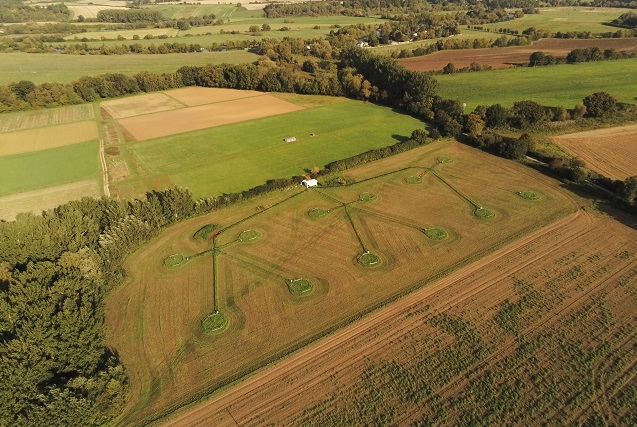I am James Ryalls, an early career researcher in the School of Agriculture, Policy and Development, and I have been working at the University since January 2018. I initially started working as a post-doctoral research associate on a NERC discovery science project. The University of Reading’s Research Endowment Trust Fund (RETF) provided me with a valuable opportunity that many research grants are not able to. So often, post-doctoral researchers find themselves in a position towards the end of their often-short-term positions that requires them to wrap-up a line of research at breakneck pace when, more often than not, they have only just discovered the tip of the proverbial iceberg of their research question.

The RETF application was submitted by my line manager, Associate Professor Robbie Girling. He had recently received funding from NERC to build a Free-Air Diesel and Ozone Enrichment (FADOE) research platform at the University’s Sonning farm site. Therefore, we were able to make a strong case for a project that could leverage this new facility to conduct novel high-risk research that could be used to generate data that might be able to leverage further external funding. The RETF funding allowed me the time to develop my own independent research career by working on and submitting a Fellowship application to the Leverhulme Trust, whilst continuing with a line of research that I was passionate about. The project provided me with time to focus on cutting-edge research questions that would have otherwise been left unanswered.
The greatest success resulting from our RETF project for me was that the Leverhulme Trust fellowship application was successful, meaning that I have since been able to continue to develop my own independent research career.
One of the main research questions of the RETF project focussed on understanding how field-realistic levels of air pollution (diesel exhaust emission and ground-level ozone, in particular) affects the attraction of insect natural enemy parasitoids, which act as plant bodyguards, towards crop-feeding aphids. Results demonstrated that while ozone does interrupt host-finding by an aphid parasitoid, diesel exhaust emission contradicted the current scientific dogma and actually enhanced the host-finding ability of the parasitoid. Funds offered by the RETF allowed me to identify specific plant-mediated mechanisms (i.e. glucosinolates) that were responsible for driving the pollution-mediated changes in the recruitment of these plant bodyguards.
The project also allowed me to help test and use our new NERC-funded FADOE research platform, which includes twelve 8m-diameter fumigation rings in the field, to help understand how insect and plant communities will change as we shift away from fossil fuel dependence, the investigation of which has been surprisingly overlooked considering how much we depend on plants and the services (e.g. pollination and pest control) that insects provide.
In short, I am extremely grateful to the RETF for the career development opportunities that it has provided and would encourage others to consider this incredibly generous and flexible opportunity as a way to investigate an existing or new avenue of research, which, in my case, provided an excellent steppingstone towards becoming an independent research scientist at the University of Reading.
